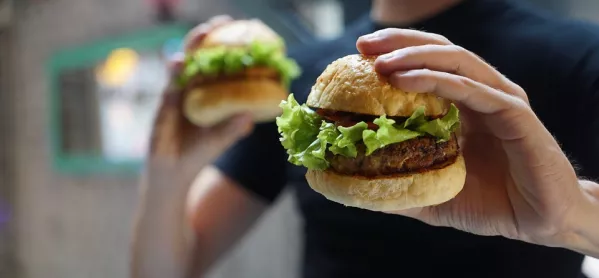Schools should invite health specialists to visit on a regular basis, in order to support children struggling with obesity, a new report says.
Teachers should also be aware that children from disadvantaged backgrounds can become malnourished during the school holidays, meaning that they subsequently fall behind academically, according to a report published by health-based Guy’s and St Thomas’ Charity.
Bite Size: breaking down the challenge of inner-city childhood obesity draws attention to the fact that children raised in deprived inner-city areas are more likely to be obese than their more advantaged classmates.
It shows that children living in the areas of greatest deprivation are twice as likely to be obese as their wealthier neighbours. This “deprivation gap” has increased by more than 50 per cent in the past decade.
‘Clear, combined strategy’
Writing in the report, Liz Robinson, co-headteacher of Surrey Square Primary in South London, calls on schools to recognise their role in ensuring pupils’ health.
“We are not public-health specialists,” she said. “We need a clear, combined strategy with key health and social partners to work with us on what healthiness means to us as schools.
“For example, making sure that specialist professionals carry out a number of visits to schools to support a percentage of the worst affected families, help share and develop best practice and how this can work well in schools.”
The body mass index of poorer children tends to increase dramatically during the school holidays, as they put on weight. The report states: “This is thought to be because these children engage in a lot less activity and eat a poor and unhealthy diet.”
Teachers also report that children are returning to school after the holidays malnourished. They subsequently fall behind their peers academically.
“Many will never claw back this learning and health disadvantage, to fulfil their potential,” the report states.
Influences
But it suggests that schools - as well as parents and communities - can break the link between childhood obesity and deprivation.
Ms Robinson argues that schools should ensure that “all children have access to PE, as part of the curriculum”.
At her school, she adds, sports coaches circulate during break times, encouraging children to be active in the playground.
And Kieron Boyle, chief executive of Guy’s and St Thomas’ Charity, said: “The places our children grow up - our homes, schools and streets - are influenced by many different people. We will succeed by bringing them together and creating environments that make the healthy thing to do the easy thing to do.”
Want to keep up with the latest education news and opinion? Follow Tes on Twitter and like Tes on Facebook




